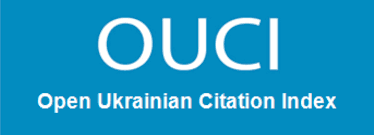CONTENT OF HEAVY METALS IN THE BEES TISSUES AND PRODUCTS DEPENDING ON AGROECOLOGICAL CONDITIONS OF CARPATHIANS REGION
І. І. Kovalchuk, R. S. Fedoruk
This email address is being protected from spambots. You need JavaScript enabled to view it.
Institute of Animal BiologyNAAS, Lviv, 38 Stus Str. 79034,Ukraine
Two sets of investigations of tissues and products of melliferous bees in the different agroecological zones of Carpathians region of Ukraine were conducted. The first study were undertaken in a spring-summer period in the agroecological conditions with different intensity of technogenic loading on apiaries placed at distance of 15 kilometres and 30 kilometres from an industrial centre, as an ecological zone of the intensive technogenic loading, where colony of control apiary was kept out. The second researches were conducted in agroecological zones with different anthropogenic loading on an environment — low-laying area, foot-hill and mountain zones of Carpathians. An apiary farm placed in a low-laying area agroecological zone was chosen as a control. The apiary farms of foot-hill and mountain zones were chosen as experimental ones. The bees tissues and products are taken from 3 beehives of every zone in a spring-summer period and the concentration of some heavy metals (Fe, Сu, Ni, Cr, Zn, Pb and Cd) have been determined by the atomic absorption spectrophotometer SF-115 PC.
As a result of studies it have been set that keeping of melliferous bees in agroecological conditions with the insignificant level of technogenic contamination is accompanied by lower content of heavy metals in the production. Lower Fe, Zn, Cu, Cr, Ni, Pb concentration in the heads of melliferous bees kept out at the distance of 15 and 30 kilometres from the zone of the intensive technogenic loading were found. The thorax of melliferous bees of 1st and 2nd experimental groups had lower amount of Fe, Zn, Cu, Ni, Pb and higher content of Cr compare to bees of a control group. The same concentrations of all investigated heavy metals except Cu were found in the abdomen where Cu concentration was not different from the level in a control group.
Agroecological conditions of foot-hill and Carpathian Mountains decreased the Cu and Ni contents in the tissues of head, thorax and abdomen of melliferous bees as well as in honey and bee pollen and lowered in these products the Pb and Cd contents to the trace levels.
The results of investigations show that products of beekeeping may be used as bioindicators of contamination of environment by heavy metals. The influence of agroecological conditions and nutrition of melliferous bees on the indices of mineral composition of beekeeping products are speculated.
Keywords: BEES, TISSUES, PRODUCTS OF BEEKEEPING, HONEY, HEAVY METALS, AGROECOLOGICAL CONDITIONS














